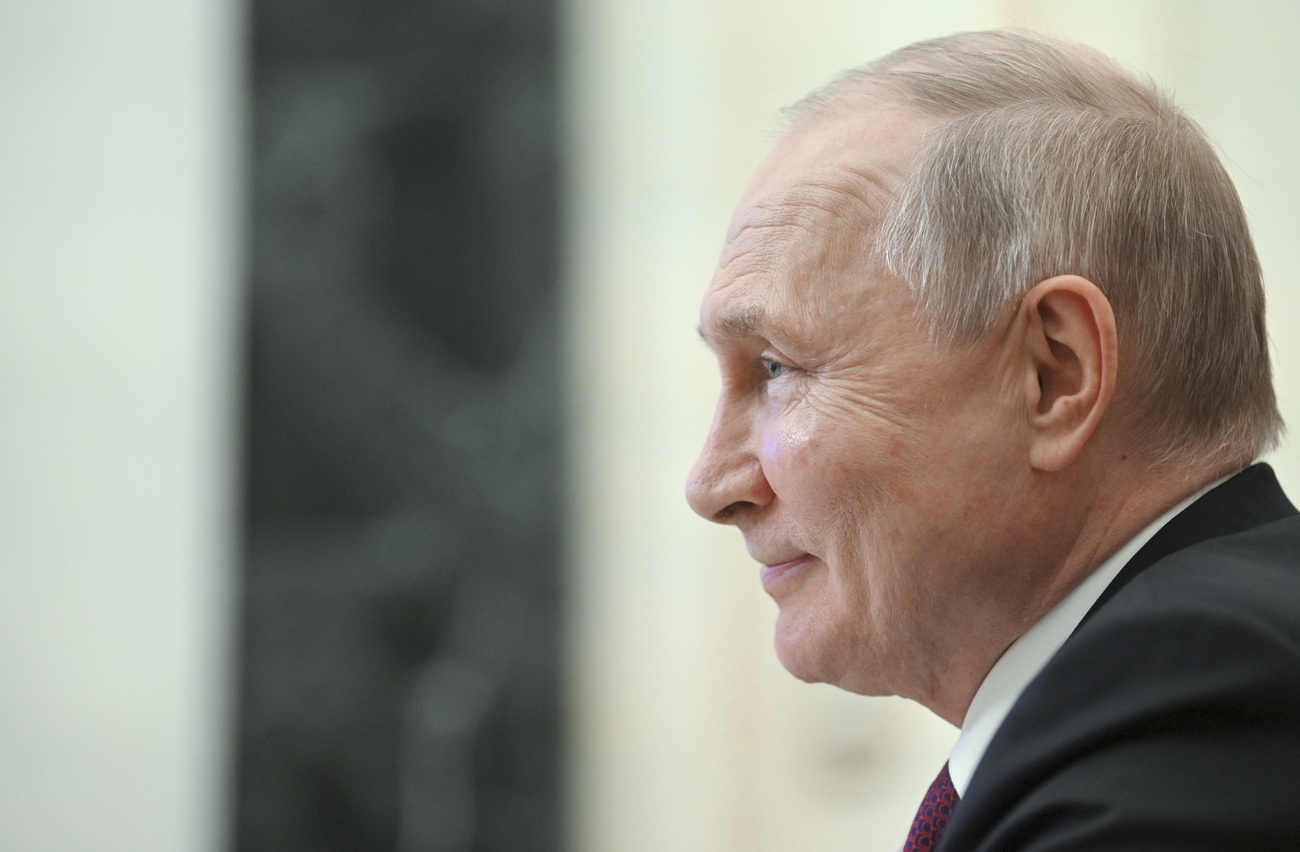
Swiss develop algorithm to filter Russian Telegram propaganda

Swiss researchers have developed an algorithm to automatically detect propaganda on the messaging service Telegram. This could help channel moderators filter out unwanted messages automatically.
+Get the most important news from Switzerland in your inbox
“In some countries, such as Russia and Ukraine, Telegram is one of the most important information platforms. Content moderation is carried out by the individuals who lead a group or channel. There is no independent fact-checking body,” said the Swiss Federal Institute for Technology Lausanne EPFL.
+ How Switzerland is caught up in the Russian propaganda machine
Therefore, moderators set their own rules and must often manually remove unwanted content, despite having software at their disposal that is often based on very simple criteria, such as the detection of obscene expressions, according to EPFL.
The new algorithm, presented in a recent study, was developed by researchers at EPFL and the Max Planck Institute in collaboration with Ruhr University Bochum. It makes it possible to identify accounts that systematically spread propaganda on Telegram.
Repetitious wording
“One of the most striking characteristics of propaganda accounts is that they post messages with the same wording in different places, sometimes on different channels. While regular accounts post unique messages, propaganda accounts form large networks that repeatedly disseminate the same content,” EPFL’s Carmela Troncoso told Swiss public broadcaster RTS.
The researchers used these repetitions to program an automated detection mechanism.
A total of 13.7 million comments from 13 Telegram channels were analyzed, focusing on politics and current events. Approximately 1.8% of the comments were found to be propaganda. The majority came from a pro-Russian network, while a smaller portion was pro-Ukrainian.
The algorithm “was able to detect propaganda based on a single comment with a success rate of 97.6%, which is 11.6% better than a human,” writes EPFL.
The research team now hopes that their tool can help ease the work of moderators, as they aren’t available 24/7. Constant exposure to propaganda can also have negative effects on mental health.

More
Debunking Russian propaganda on Switzerland
Translated from French by DeepL/mga
We select the most relevant news for an international audience and use automatic translation tools to translate them into English. A journalist then reviews the translation for clarity and accuracy before publication.
Providing you with automatically translated news gives us the time to write more in-depth articles. The news stories we select have been written and carefully fact-checked by an external editorial team from news agencies such as Bloomberg or Keystone.
If you have any questions about how we work, write to us at english@swissinfo.ch

In compliance with the JTI standards
More: SWI swissinfo.ch certified by the Journalism Trust Initiative






























You can find an overview of ongoing debates with our journalists here . Please join us!
If you want to start a conversation about a topic raised in this article or want to report factual errors, email us at english@swissinfo.ch.